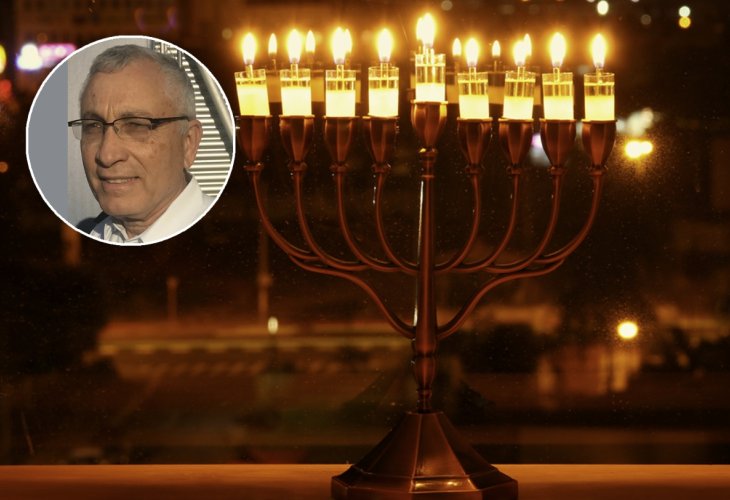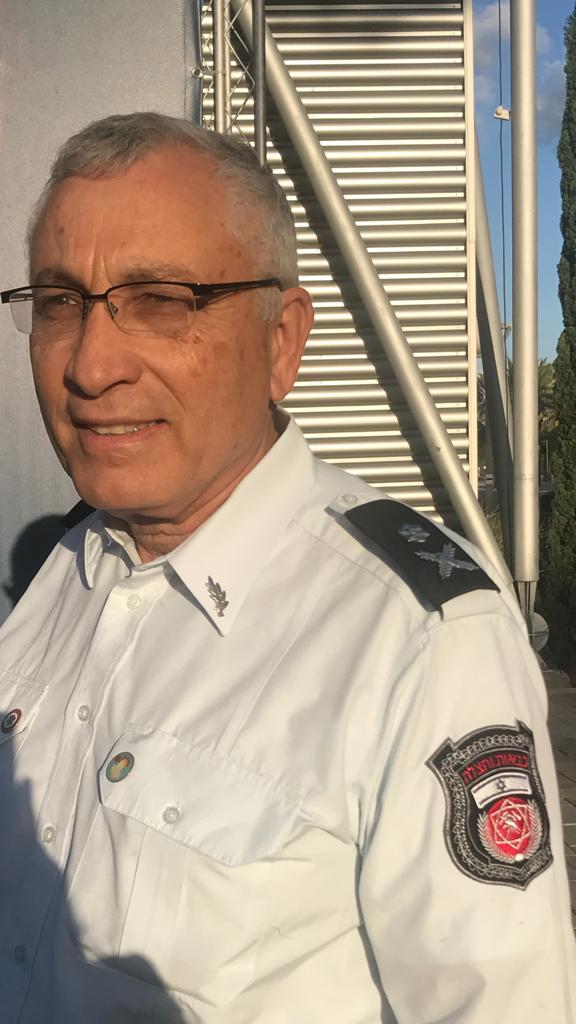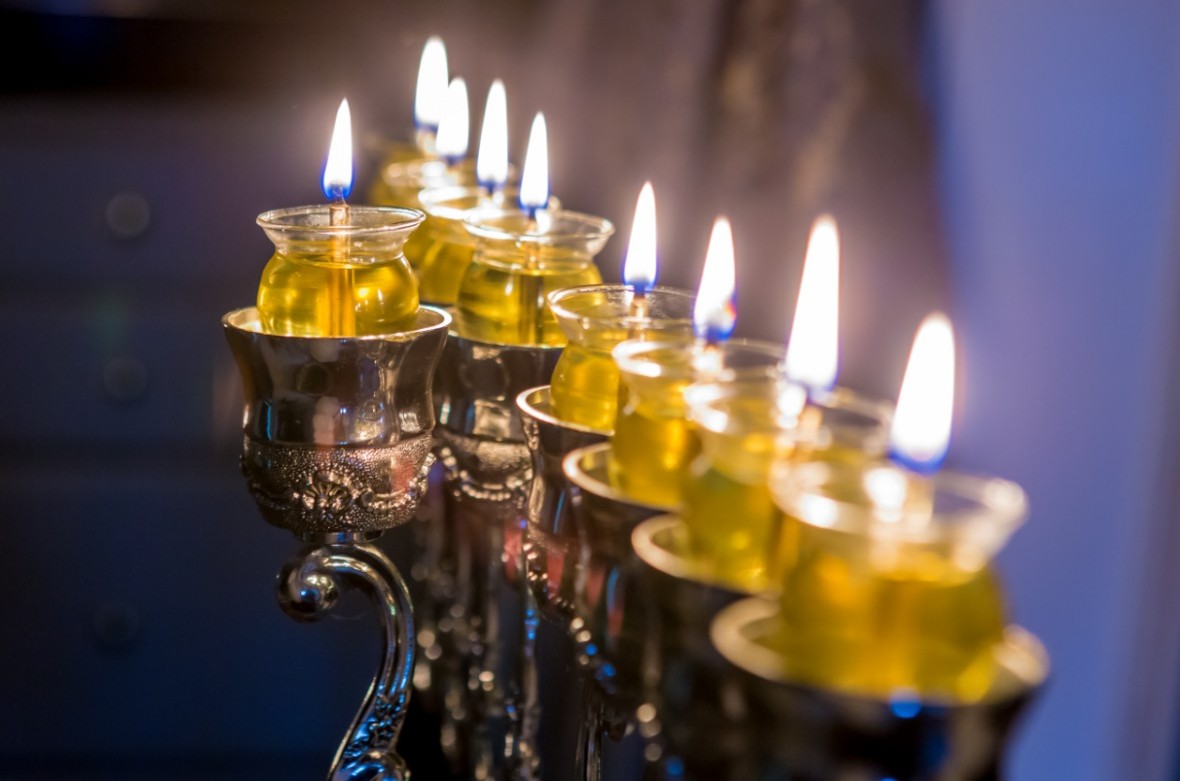Fire Safety Chief's Urgent Chanukah Warning
Every Chanukah, fire accidents spike dramatically. Why does this happen, and how can we prevent tragedies? Fire Safety Chief Chaim Tamam has a crucial message: 'Stay safe so we can celebrate Chanukah in peace.'
 In the circle: Fire Safety Chief, Chaim Tamam (Photo: Shutterstock)
In the circle: Fire Safety Chief, Chaim Tamam (Photo: Shutterstock)Hearing the words 'Chanukah holiday' instantly brings a look of concern to Chaim Tamam's face, the Fire Safety and Investigation Division Head. For him, and for fire crews across the country, Chanukah is not just about vacations, dreidel games, and oil-drenched sufganiyot; it's also about eight days of heightened fire risk, posing real dangers.
'We don't have precise numbers on the fires breaking out during Chanukah,' he states. 'The figures vary each year, but one thing is clear - each Chanukah, we see a dramatic rise in house fires, and unfortunately, these incidents often result in casualties. Despite their beautiful glow and the warm atmosphere they create, Chanukah candles can be very dangerous.'
From his experience, he notes that most fires occur in religious and Haredi sectors. 'About 80% of Israel's Jewish population lights Chanukah candles, including non-religious families, who typically light one menorah. In contrast, religious and Haredi families tend to have each child light their own, increasing the risk of accidents.'
 Fire Safety Chief, Chaim Tamam
Fire Safety Chief, Chaim TamamWhy do these tragedies happen?
'It's simple,' he explains. 'People aren't careful enough when lighting candles, and many fires stem from small mistakes. Last year, for instance, we responded to a fire in a home where the menorah was placed on a plastic tray. The flames heated the plastic, which caught fire, and the chair beneath it, being wooden, burst into flames. Sadly, there were injuries in that incident.
Another case last year in Beit Shemesh involved a family who lit their candles near a window. The curtains caught fire, spreading flames throughout the house, causing significant damage.
A Small Flame Can Destroy a Whole House
For those feeling alarmed, Tamam reassures that a definitive solution exists to prevent disasters, with Hashem's help: 'Before lighting candles, ensure it's done safely and cautiously. Make sure there's nothing flammable nearby - including wood, plastic, cardboard, fabric, or any other combustible material. Recently, I heard about a yeshiva in Jerusalem where the students wanted to light their menorahs by the door to publicize the miracle. They moved a wooden bookshelf to the entrance and placed several menorahs on its shelves. I was horrified. That bookshelf could become a bonfire in an instant, posing a life-threatening danger.'
Even when you light your menorah safely, you can't entirely relax, as unexpected dangers may arise, like wind fanning flames, tipping the menorah, or other unforeseen incidents. 'These unexpected events have a common factor - they usually happen when the candles are unattended. So, it's recommended not to leave lit candles unsupervised, especially when leaving the house, and to ensure they're extinguished before going to sleep. Personally, I light my candles as early as possible at sunset and don't sleep until I see they're fully extinguished. Understand that a small flame can reach a temperature of 900 degrees Celsius in seconds. If wood or anything combustible is nearby, it will ignite in seconds. This risk is so high, you don't need to make a major mistake for it to happen - just a moment's inattention.'
 (Photo: Shutterstock)
(Photo: Shutterstock)He also wants to highlight another issue: 'Our children often bring home homemade menorahs from school made of wood or even styrofoam, string, and similar materials. This is highly problematic because these menorahs can be flammable and dangerous. It's crucial to light only with a metal menorah, as metal is generally non-flammable.
'When setting up the menorah, ensure that the wax has dripped properly into the holders, and the candle won't fall. One small candle can instantly cause a large fire. Afterward, place the menorah on a non-flammable surface, not on trays. Adhering to these guidelines can almost entirely guarantee you are protected from fires.'
What should we do if a fire breaks out?
If a fire starts, immediately call firefighters at 102, providing as many details as possible. Evacuate family members immediately and try to extinguish the fire using home fire extinguishers or water. But note: do not throw water on electrical sources or burning oil. If you cannot control the fire, exit the dwelling and, if possible, disconnect electricity and gas.'
In conclusion, he emphasizes: 'Unfortunately, there's a general lack of awareness about Chanukah fire safety. People don't realize they need to be careful and often get creative with menorah placement without considering the dangers to themselves and their environment. This is a reminder to everyone - if you see someone being careless, it's vital to speak up and draw their attention to it. Spread this message and be good messengers. And whoever saves a single life from Israel is considered as if they saved an entire world.'

